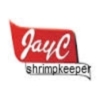-
Must Read SKF Articles
-
Posts
-
By beanbag · Posted
Hello folks, The current problem I am having is that my Taiwan bee shrimp are molting before all their eggs have hatched. Often the shrimp keep the eggs for 40+ days. During that time, they lose about half or so, either due to dropping or duds or whatever. Shortly before molting they look to have about a dozen left, and then they molt with about half a dozen eggs still on the shell. Then the other shirmp will come and eat the shell. These last few times, I have been getting around 0-3 surviving babies per batch. I figure I can make the eggs hatch faster by raising the water temperature more (currently around 68F, which is already a few degrees higher than I used to keep it) or make the shrimp grow slower by feeding them less (protein). Currently I feed Shrimp King complete every other day, and also a small dab of Shrimp Fit alternating days. Maybe I can start alternating with more vegetable food like mulberry? or just decrease the amount of food? -

By ngoomie · Posted
Yeah, cancer risk was a thing I'd seen mentioned a lot when looking into gentian violet briefly. I kinda just figured it might only be as bad as the cancer risk of malachite green as well, but maybe I should look into it more. I've been doing a pretty good job of not getting it on my skin and also avoiding dunking my unprotected hands into the tank water while treating my fish at least, though. Maybe I'll just not use it once I'm done this course of medication anyways, because I know a store I can sometimes get to that's pretty distant carries both malachite green and methylene blue, and in pretty large quantities. -

By jayc · Posted
Can't help you with Gentian Violet, sorry. It is banned in Australia violet for potential toxicity, and even possible cancer risks. I thought it was banned in Canada as well. At least, you now know why there isn't much info on gentian violet medication and it's use. But keep an eye on the snails after a week. If it affects the snails, it might not kill them immediately. So keep checking for up to a week. Much safer options out there. No point risking your own life over unsafe products. -

By ngoomie · Posted
Hello! I have a tank that currently does not contain shrimp, but does contain neon tetras which I am currently treating for Ich, as well as some bladder snails. Shrimp will be a later addition, likely cherry shrimp but I'm still doing research just to be sure. Initially I'd intended to buy some sort of Ich-fighting product that contains malachite green after doing a decent bit of research on it, most of which indicated that it should be shrimp-safe so I'd be good if I ever needed to use it again once shrimp were actually introduced (though I should note I'm aware shrimp can't get Ich, I'm more wondering in case the tetras could get Ich again, or something else that responds to similar medication). I ended up not being able to find any MG-containing products without either having to travel quite far or wait multiple days for delivery (which I was worried could lead the Ich to be fatal), and ended up picking up 'Top Fin Ick Remedy', a product that contains gentian violet which is a triarylmethane dye like malachite green. The bottle has two slightly differently worded warnings about its use with invertebrates ("not recommended for" and "not safe for" respectively), but when I'd been researching malachite green, I'd also heard of products that contain MG but not any other ingredients that would be harmful to inverts still being branded with warnings that they could be harmful, just as a "just-in-case" since the manufacturer didn't test it on any inverts, and I'm wondering if maybe it could be a similar situation here. I'm having a very very hard time finding information about gentian violet's use in fishkeeping at all though, it seems currently extremely uncommon. What I will say though is that I'm on day 2 of treating my tetras with it, and the bladder snails seem just fine -- in fact today I noticed what looked to be a bladder snail that appeared to be newly hatched (because of its size) that I hadn't seen before that was zipping around the tank without issue. But obviously, shrimp are not snails, and bladder snails are also notoriously hardy little guys, so what I'm seeing right now could easily be totally inapplicable to cherry shrimp. It might even be inapplicable to other species of snails, for all I know. Has anyone else here ever used anything that contains gentian violet in a tank that actually does contain shrimp? Were they okay, or should I make sure to not use it once shrimp are added? -
-

Recommended Posts
Create an account or sign in to comment
You need to be a member in order to leave a comment
Create an account
Sign up for a new account in our community. It's easy!
Register a new accountSign in
Already have an account? Sign in here.
Sign In Now